Dowell, Frances O'Roark. 2009. The Kind of Friends We Used To Be. Simon & Schuster. 234 pages.
When Kate decided to play the guitar, she realized she would need new shoes.
I loved this one. I just loved it. I loved it because I could relate to it. I loved it because I could see myself in both friends, in Kate and Marylin. I loved it because it had this oh-so-right feel to it, it felt authentic, genuine. This book is narrated by both girls.
Like so many books for this age, it deals with identity. With getting to know (and love) yourself. With trying to make sense of the fast-changing world. With friendships--both new and old. (With frenemies too.) With school, family, and life. What is it about? It's about two girls finding themselves, learning what they want and need, and coming to terms with each others' differences. You don't *have* to be the same all the time. You can like what you want to like, do what you want to do. For Kate that means learning to play guitar, and getting comfortable enough to write her own songs, her own lyrics. For Marylin that means deciding who she really is and what she really wants. Does she really, really want to be a cheerleader who cares only about hair and fashion? Or does she want something a little more? Will being part of the student council help her decide?
You might remember Kate and Marylin from The Secret Language of Girls. (But you don't have to have read the first book to appreciate this one!) It was a very satisfying read.
© Becky Laney of Becky's Book Reviews
Viewing: Blog Posts Tagged with: coming-of-age, Most Recent at Top [Help]
Results 26 - 50 of 52
Blog: Becky's Book Reviews (Login to Add to MyJacketFlap)
JacketFlap tags: friendship, school, YA Fiction, J Fiction, coming-of-age, Simon and Schuster, J Realistic Fiction, 2009, review copy, Add a tag
Blog: Kids Who Read (Login to Add to MyJacketFlap)
JacketFlap tags: 6-8 Grade, Enjoyable for parents, 3-5 Advanced Read, Uncategorized, friendship, Historical Fiction, coming-of-age, justice, tragedy, Add a tag
Lizzie Bright and the Buckminster Boy by Gary D. Schmidt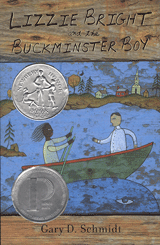
Fiction tends to follows certain rules, particularly fiction for kids. The reader is satisfied when the bad guys get their due, and when true friendship endures. But fiction based on a real event cannot necessarily follow those rules, because in real life, often good guys lose really badly and friendships get lost forever. In 1911, the lives and homes of the people of Malaga Island off the coast of Maine did get destroyed by some greedy, powerful men from the neighboring mainland. Nothing good came of it; the powerful men never got the tourist attraction they wanted and the people who lived there never came back.
Author Gary D. Schmidt populates this story with the new minister’s son who lives on the mainland and an orphaned girl, the youngest of several generations of African-Americans to call Malaga home. Turner finds his starched white shirts and the scrutiny due to the new minister’s son suffocating. He meets Lizzie, who rows over from her island to dig for clams on the mainland beach. Their instant liking for each other deepens into a solid friendship. He believes he can save her. She tells him he isn’t thinking straight. She is the wiser of the two.
This is a tale of the war between two human instincts: the desire to be generous and kind to others and the coexisting capacity to treat fellow humans cruelly and without conscience. It is told with a cast of colorful characters on a backdrop of natural beauty by a sensitive and lyrical writer. Written for middle school and older elementary school kids, it is also a joy to read for an adult.
Gaby

Blog: Kids Who Read (Login to Add to MyJacketFlap)
JacketFlap tags: friendship, Historical Fiction, Non-Fiction, Holocaust, girls, girl power, survival, coming-of-age, strong girl character, 6-8 Grade, Easy Read, Add a tag
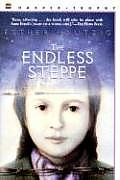 The Endless Steppe by Esther Hautzig
The Endless Steppe by Esther Hautzig
Exiled to Siberia. After several weeks on a train, “enemies” of the Russian state have been dropped off to be forgotten in this nearly empty five million square miles for four hundred years. Ten-year old Esther Rudomin’s parents and grandparents are accused of being capitalists by the occupying Russians in 1941. They are yanked from their life of luxury and privilege in Vilna, Poland one morning and thrown into cattle cars with nothing but what they can carry. They end up being “lucky” for they are Jewish and the Germans who invade soon after did not practice the art of exile.
Esther spends the next five years in Rubtsvosk, Siberia. Extreme cold, constant hunger, filth, and fear are her constant companions. Yet she can still fret, like any young adolescent, about fitting in with her peers to the point that she will sacrifice food if it means she will belong. She creates, through pure force of will, the early teen years that she desires and when it is time to leave, she experiences the separation anxiety any teen feels when they must leave the first world they have created for themselves.
This is a story of resilience, pride, and determination, an intimate portrait of one slice of a significant time in relatively recent history. Girls from about fifth grade up to early high school will appreciate this story.
Gaby

Blog: Kids Who Read (Login to Add to MyJacketFlap)
JacketFlap tags: friendship, coming-of-age, high school angst, violence, 9-12 Grade, Real World Fiction, recovery from trauma, controversial content, Add a tag
The Perks of Being a Wallflower by Stephen Chbosky
Something is wrong with Charlie, the sixteen year old boy who narrates this story through letters written to an unspecified “friend.” He is subject to dramatic mood swings, has trouble with the art of truthtelling, and lacks social grace. The suspense that drives the story is the uncertainty over whether Charlie’s fragility will survive the onslaught of over-the-top adolescent hazards. Nothing is spared; there is drinking, violence, drugs, smoking, abuse, homosexuality, fast-driving, and explicit sex. Ironically, it is the realization of his dream of the tenderness of true love that pushes him over the brink, forcing him to finally come to terms with events in his early childhood that damaged him.
This novel has been compared to Catcher in the Rye. It is similar in that it too is a book that belongs to young people, in that it expresses the drive for a generational truth in still forming young minds. But Charlie is not as angry as Holden Caulfield. Charlie has more reason to complain and be vengeful but he is too devoted to the principal of love. And this is why he is able to face his demons and come to the conclusion that he cannot change his past, but he can make a better future for himself.
The explicit content in this book has made this a controversial book. It has been banned by adults, and teenagers have named it as the best book they have read–a book that has changed their lives and made them interested in reading. As an adult who finds books for kids, I found the content almost relentlessy disturbing–did they have to smoke too?–but I realize the content represents the minefield that a broken Charlie must navigate, and thus highlights both his strengths and his undeserved baggage. Teenagers brought this book into my classroom. Most of my students seem to know about this book, and some chose not to read it. That seems appropriate. It is their book, let them choose.
Gaby

Blog: Kids Who Read (Login to Add to MyJacketFlap)
JacketFlap tags: Real World Fiction, boys, girls, coming-of-age, high school angst, 9-12 Grade, Add a tag
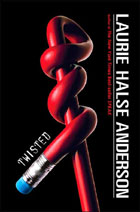 Twisted by Laurie Halse Anderson
Twisted by Laurie Halse Anderson
The saying Be careful what you wish for would have been good advice for Tyler, who spent the first three years of high school trying to be the kind of guy that would appeal to the most popular girl in school. Who would have thought that getting in trouble for a graffiti prank at the end of his junior year would propel him into the ranks he dreamed of for his senior year. But what does he find when he gets there? Nothing but trouble. What he has to face is how much of himself he is willing to give up and just how he will stand his ground.
Identity and power struggles evolve in this book on a backdrop of teen concerns with drugs, sex, school, and family. The theme is one of inner strength and self-respect overcoming an onslaught of adversity in the pursuit of adolescent happiness. Strong writing, well-liked by many of my middle and high school students.
Gaby

Blog: Kids Who Read (Login to Add to MyJacketFlap)
JacketFlap tags: magic, girls, girl power, high school, survival, coming-of-age, rape, 9-12 Grade, Mystery & Suspense, Fantastic!, suspenseful, Fables, Folk Tales & Myths, Add a tag
A good part of being a teenager is the uncovering of mysteries about one’s own self. Lucy has more of a task with this than most teenagers since she is the target of an ancient curse, one based on the song Scarborough Fair. In a contemporary teen setting, Lucy must first discover the nature of a curse that threatens to irrevocably determine an unacceptable fate. Then, with the help of foster parents and a loving boyfriend (as well as the modern advantage of technology) she must try to break the curse.
A little of the supernatural really makes this story of strength, courage, and love sparkle. The obstacles are powerful, the drive for resolution is intense, the strength of love is thrilling. Teenage girls in my eighth and ninth grade classes last year were thrilled with this book. While there is some violence and moderately inexplicit sex, including a slightly surreal rape scene, the overriding theme is the power of love and resolve in overcoming adversity.
Gaby Chapman

Blog: Becky's Book Reviews (Login to Add to MyJacketFlap)
JacketFlap tags: borrowed book, family, war, YA Fiction, YA Historical Fiction, brothers and/or sisters, YA Romance, coming-of-age, FSG, verse novel, 2009, Add a tag
Frost, Helen. 2009. Crossing Stones. FSG. 184 pages.
You'd better straighten out your mind, Young Lady.
Loved, loved, loved this verse novel by Helen Frost. It's historical fiction. A drama following the lives of two families. The Jorgensens and The Normans. The year is 1917 (and 1918). We've got many narrators (both male and female), many stories. Emma and Frank Norman. Ollie and Muriel Jorgensen. Frank loves Muriel. (Does she love him like that though?) Ollie loves Emma.
But war has its own role to play in the lives of these two families. It changes everything. It changes what should be and what could be. It confuses everyone, taints everything. Will anyone be the same after it is all over?
Women's suffrage. World War I. Spanish influenza. Muriel, Ollie, and Emma are coming of age at a difficult time in American history. Muriel is arguably the strongest narrator of the bunch. She believes in peace, hates that American soldiers are getting involved in the war, hates the fact that the men in her life--Frank and Ollie--are wanting to go to war, enlisting. She's a suffragist--in her dreams at least. She supports the cause. Even though she's not actively involved in marches and protests and such. Like her aunt.
The book examines how war--this war in particular--shaped the men and women of that generation.
What did I love about this book? Just about everything! I loved the setting. Felt it very rich in detail. Loved the feeling of losing myself in another time and place. I loved getting a look at what life was like (or what it could have been like at the very least) during this time period. So much of what I read--when it comes to war--is set during World War II, so it was refreshing to see this one about World War I. It was interesting to me. Compelling. The poetry was great. Loved the different voices--each narrator was unique, and I appreciated all the different perspectives. I loved that it made me think, really think. It's one that I'd definitely recommend to those in my life that can't get enough historical fiction.
© Becky Laney of Becky's Book Reviews
Blog: Becky's Book Reviews (Login to Add to MyJacketFlap)
JacketFlap tags: family, friendship, war, Random House, brothers and/or sisters, J Fiction, coming-of-age, grandparents, J Realistic Fiction, 2009, library book, Add a tag
Parry, Rosanne. 2009. Heart of a Shepherd. Random House. 161 pages.
Grandpa frowns when he plays chess, like he does when he prays.
Our narrator is Brother. (If your name was Ignatius, you might prefer the nickname Brother too.) As he says in the first chapter, "Guess they ran out of all the good saints by the time they got to me. Lots of things ran out by the time they got to me. My brother Frank says it could be worse--they could have picked Augustine or Cyril--but honest, I wouldn't have minded being Gus, or even Cy. But Ignatius pretty much shortens to "Ig" or "Natius." That's not even a good name for a cow. Heck, I wouldn't name a pig either one" (8).
He comes from a line of ranchers and soldiers. Big men, strong men, manly men. Unfortunately, for Brother, his father's reserve unit has been called to Iraq. And his older brothers are all in college. So it's just him, grandpa, and grandma there on the ranch. (Well, along with a few hired hands.) Can he handle it? Does he have what it takes to be a rancher? A real rancher? Can he be responsible? Can he be a man?
Cows. Sheep. Horses. You'd think I wouldn't like this one. But you'd be wrong. I ended up loving this one because it has a lot of heart. I'm talking meaning-of-life type heart and soul here. Can Brother find his place, find his purpose? Should he follow in his father's footsteps? His grandfather's?
I loved this one for many different reasons. It was thoughtful, for one thing. It portrayed faith really, really well. Probably one of the best examples of faith-in-fiction that I can think of. (A Road to Paris also comes to mind in this category.) It was also relevant. It dealt with how a young person might react to having a parent go to war. Since this town had a lot of parents-as-soldiers, there is a whole community of kids, of families worrying and waiting and hoping. It's not often you get modern-day stories about war. (Not nearly as popular as books set during World War II.) But above all else, I think the book does justice to relationships, of family dynamics. I think the friendship between grandfather-and-grandson was just awesome. I love, love, loved this aspect of the novel.
© Becky Laney of Becky's Book Reviews
Blog: Becky's Book Reviews (Login to Add to MyJacketFlap)
JacketFlap tags: family, friendship, school, J Historical Fiction, J Fiction, coming-of-age, bullies, 2009, library book, Add a tag
Levine, Kristin. 2009. Best Bad Luck I Ever Had. Penguin. 264 pages.
I've been wrong before. Oh, heck, if I'm being real honest, I've been wrong a lot. But I ain't never been so wrong as I was about Emma Walker. When she first came to town, I thought she was the worst piece of bad luck I'd had since falling in the outhouse on my birthday. I tell you, things were fine in Moundville before Emma got here, least I thought they were. Guess the truth is, you'll never know how wrong I was till I'm done telling and explaining--so I'd better just get on with the story.
I'll be honest from the start. I love, love, love this book. I do. I mean this is one oh-so-good, oh-so-magical, practically-perfect-in-every way type of book. But that's my opinion.
Our narrator, Harry Otis Sims (aka "Dit") had me at hello. His oh-so-southern voice won me over. I guess maybe this won't appeal to everyone. I mean some people love Southern fiction--books set in the Deep South--and others don't. (This one is set in Alabama.) This one is also historical fiction. So there's that as well.
The year is 1917. (The novel does go into 1918 as well. In fact we see the influenza epidemic come into the story. Winnie's War is set around this same time only in Texas.)
Dit is your typical boy. He's more interested in fishing and playing baseball than almost anything else. And he really wants--more than anything--to have a best friend his own age who shares his interests. That is one reason why he's excited the town is getting a new postmaster. He's hoping he'll have a family, a son, just the right age.
Emma. She's a girl. (Obviously.) And she is colored. (That's the word they use in the book, for the most part.) The Walker family has just moved from Boston. (The postal service has transferred him. He'll be here a year at least.)
What's this small community to make of this new family? What's poor Dit to think of this new girl? Can the two ever be friends? And what would that friendship look like?
I loved Emma. I mean I love, love, loved Emma. I loved how smart she was. I loved her bookishness. I loved how her love of books baffled young Dit. How he just couldn't understand how awesome reading is. I don't want to go into all the details, but I just thought this story had it all.
The characters. The dialogue. The story. Everything just right. Well, almost. I still think the cover could have been better. It's not that the flying bird doesn't work thematically. It's just that it doesn't scream read me, read me. What do you think? Based on the cover alone, would you pick it up?
Other reviews: TV and Book Addict, Semicolon, Book Bits, Patchwork of Books, Musings of a Book Addict.
© Becky Laney of Becky's Book Reviews
Blog: Kids Who Read (Login to Add to MyJacketFlap)
JacketFlap tags: Fantastic!, friendship, Adventure, Historical Fiction, boys, girls, survival, power, coming-of-age, 9-12 Grade, Enjoyable for parents, Add a tag
The Gift of Rain, by Tan Twan Eng
As a teenager living in Penang, Malaya during the Japanes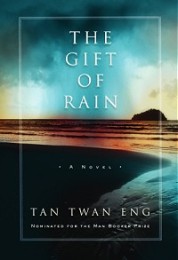 e invasion of World War II, Phillip Hutton has to choose between several bad options. Born of a British adventurer/trader father and the daughter of a successful Chinese expatriate, Phillip is the student of a Japanese aikido master. The aikido becomes a metaphor for his choice, his ability to endure, and ultimately his survival–to deflect aggression, to roll, and to come up standing. But in life, it is a whole lot harder to carry off.
e invasion of World War II, Phillip Hutton has to choose between several bad options. Born of a British adventurer/trader father and the daughter of a successful Chinese expatriate, Phillip is the student of a Japanese aikido master. The aikido becomes a metaphor for his choice, his ability to endure, and ultimately his survival–to deflect aggression, to roll, and to come up standing. But in life, it is a whole lot harder to carry off.
The combination of beautiful South Pacific imagery, the mystic presence of timelessness, the exploration of the depths of frienship and love, the inner struggles between conflicting loyalties, and the dance between inescapable fate and free will make this a richly enjoyable read for anyone who can read at or above a high school level. There is a load of information on the arrogance of British colonization, the last of the Chinese emperors, the psychology that drove the Japanese to war, the culture of Southeast Asia, Buddhism, the power system of Chinese Triads, the infancy of Asian communism and much more. Teen-age boys interested in Asian culture and history, as many seem to be, will love this adventure-filled book. Even though the protagonist is a boy, there are a few strong female characters too. A little thin on romance it may be, but I think teenage girls will like it too.
The Gift of Rain, published in 2008, was nominated for the Man Booker Prize. It is the kind of book you can’t wait to get back to and yet you hope you will never finish.
Gaby Chapman

Blog: Becky's Book Reviews (Login to Add to MyJacketFlap)
JacketFlap tags: teens in trouble with the law, 2009, friendship, YA Fiction, YA Historical Fiction, YA realistic fiction, coming-of-age, Add a tag
Brown, Chris Carlton. 2009. Henry Holt. 232 pages.
It's always a clean white car--this time a Ford.
Every now and then I come across a not-for-me type book. Such is the case with Hoppergrass by Chris Carlton Brown. It is a coming of age novel. It's set in the late sixties--1969 to be precise--at an institute for delinquent teenage boys. The novel is about the harder things of life, the injustices of life--both large and small. It's also a novel about tensions between races: the whites and blacks. Our narrator, Bowser, becomes friends with Nose, a black teen, but Bowser's other friends--and Nose's other friends--can't exactly understand. These two are scripted--by their friends--to hate one another. To be enemies. But behind the scenes, these two are on good terms. But the power and authority of this institution is corrupt--very corrupt--and the lives of some teens (delinquent or not) are at risk. Bowser is one of a very small handful that realizes just how dangerous the situation is becoming. Bowser and Nose are the two facing the biggest risks.
I think there are plenty of readers out there who can appreciate this one. It's about meaning-of-life type stuff. Serious issues of justice and injustice, corruption and prejudice and the like. It's a book about friendship and courage as well. So thematically, the book has much to offer.
I think I just didn't get this book. I didn't really feel a connection with the characters and the story. I wanted to care more than I actually did.
© Becky Laney of Becky's Book Reviews
Blog: Becky's Book Reviews (Login to Add to MyJacketFlap)
JacketFlap tags: friendship, YA Fiction, brothers and/or sisters, dysfunctional families, YA Romance, YA realistic fiction, coming-of-age, road trip, 2009, Add a tag
Caletti, Deb. 2009. The Secret Life of Prince Charming. Simon & Schuster. 322 pages.
When it came to love, my mother's big advice was that there were WARNING SIGNS.
I haven't always appreciated each and every Deb Caletti novel. Some I've loved, some I've only liked, and one I've disliked quite a bit. But what Caletti does--and quite well--is write beautifully and authentically. She has a way with words, a way with phrasing things just right so that the reader can relate. She's good at capturing the little things, the small details, that make up ordinary life. The Secret Life of Prince Charming is the story of a girl. It's not an ordinary, traditional romance. If anything it is more of an un-romance. Here we have all the gritty little details of the unhappily ever afters.
Quinn, our heroine, has heard all these stories about men all her life. How they can disappoint you, hurt you, break you, scar you, anger and frustrate you as well. Her mother. Her grandmother. Her aunt. Just to name a very few. Quinn has taken these words of warning seriously. Opting to go for the obviously-safe choices when it comes to love than the more dangerous (albeit more temptingly fun and passionate) choices. But even being safe when it comes to her love life--the ever-boring Daniel--doesn't keep her safe. Boring doesn't mean safe; nice doesn't always mean good. Does Daniel breaking up with her hurt her? Yes and no. Her pride more than anything, since her relationship lacked spark and life. He was there, but that was about it.
But the more significant relationship--though a bit off screen--is the relationship between Quinn and her father. Though her parents have been divorced a long time, though her mother never loses an opportunity to complain about her ex, Quinn feels the need to have him in her life. She wants to have a good relationship with him, even if it means allowing for his mistakes and ignoring the stupid things her father does.
But some things can't be ignored. When she discovers that her father has 'stolen' sentimental (and sometimes quite valuable) items from many (if not all) of his former lovers, then Quinn along with her two sisters (one older, one younger) set out on a quest, a road trip, to return all these items to their rightful owners. Along the way, she'll speak with each ex and learn more about her father; she's trying to piece together why her father is the way he is. Trying to make sense of who he is from what he has done.
If you're looking for a young adult book that is strictly romance, then this one may disappoint. If however you're looking for a complex story showcasing humanity--for better or worse--then this one should satisfy. It's about dynamic family relationships--Quinn's relationship with her mother, her father, her younger sister, Sprout, her older half-sister, Frances. It's a coming-of-age story as well.
© Becky Laney of Becky's Book Reviews
Blog: Kids Who Read (Login to Add to MyJacketFlap)
JacketFlap tags: friendship, Adventure, boys, Animals, immigration, survival, coming-of-age, justice, 6-8 Grade, 9-12 Grade, Real World Fiction, recovery from trauma, Add a tag
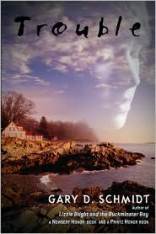 Trouble, by Gary D. Schmidt
Trouble, by Gary D. Schmidt
In Trouble, award-winning award author Gary D. Scmidt has given us a book that reminds us what a gift reading is. Not just beautifully written with exquisite imagery, a tightly woven plot, and myth-like symbolism, it is a story that nourishes the spirit. Enacted in the person of a fourteen-year-old boy, innate inhumanity and innate grace battle for hegemony.
Trouble brings sorrow. It strikes Henry’s family even though they may have every reason to believe they should have been able to avoid it. With his parents and sister engulfed in grief, Henry embarks on a quest with a good friend, a faithful dog, and a misunderstood enemy. Together, they overcome those who wish to do them harm, stumble upon one island of refuge, and battle their own demons.
This book is such a joy to read, I want to give absolutely nothing away. I would not recommend it for the reluctant reader, although experienced readers from middle school on up, both boys and girls, will most likely enjoy this book.Trouble is literature for kids at its finest.
Gaby Chapman

Blog: Crazy For Kids Books (Login to Add to MyJacketFlap)
JacketFlap tags: teens, short stories, coming-of-age, geek, Add a tag
 Before I read this wonderful collection of short stories, I hadn't stopped to think about all the different flavors of geeks there are. I can now share with you that in addition to science and math geeks, there are music geeks; gamer geeks; fantasy geeks; comic book geeks; Star Trek and Star Wars geeks; role-playing geeks; technology geeks; theater geeks; fan fiction geeks, etc.
Before I read this wonderful collection of short stories, I hadn't stopped to think about all the different flavors of geeks there are. I can now share with you that in addition to science and math geeks, there are music geeks; gamer geeks; fantasy geeks; comic book geeks; Star Trek and Star Wars geeks; role-playing geeks; technology geeks; theater geeks; fan fiction geeks, etc.
Geektastic is edited by Holly Black and Cecil Castellucci and includes stories by YA authors I recognized such as Lisa Yee, Cynthia & Greg Leitich Smith, and John Green and those I did not recognize like Barry Lyga and Libba Bray.
Advance copy invited all readers "whether you're a former, current, or future geek, or if you just want to get in touch with your inner geek, Geektastic will help you get your geek on!"
In most cases, these can be described as coming-of-age stories. Each story addresses one or more of the issues people encounter as they grow into adulthood - wanting to belong but feeling different; finding joy in interests shared with a friend; gender role development; how much self to show to the world and how much to keep hidden; family challenges; evolving friendships; honor; trust; loyalty - all the biggies.
Some of the stories are more compelling than others, but they are all worth reading. If you're not a geek yourself, you probably know a geek. What all these stories have in common is the discovery that no matter what your area of interest, everyone wants the same things - to belong; to be recognized; to be valued.
Blog: Kids Who Read (Login to Add to MyJacketFlap)
JacketFlap tags: travel, Uncategorized, Adventure, girls, high school, survival, coming-of-age, 6-8 Grade, 9-12 Grade, Easy Read, Real World Fiction, Add a tag
Carpe Diem, by Autumn Cornwell 
Being a high school girl is about finding your way from your childhood self to your adult self. At close view, that can look like making the right friends, snagging the “right” boyfriend, keeping ahead of the pack, and keeping a grasp of your appearance and dignity, while striving all the time to end up on top. If you’re lucky, as Vassar Spore is in this novel by Autumn Cornwell, you will get a chance to get sidetracked. Off the beaten track and at the mercy of fate, you may get a chance to find out who you really are and to realize that you like what you find.
Autumn Cornwell has written a story about an American high school girl who is just that close to having it all. When this fully Americanized teenager suddenly and unwillingly finds herself travelling through Laos, Cambodia and Malaysia, we expect her horror at germs, unfamiliar food, lack of shower facilities, and large bugs. We even expect that she will change and find wisdom in her new surroundings because it seems the plot is directed towards this. But since the author was an avid traveller in her own youth, her descriptions of these countries are weighted with a profound fondness. What could have been a trite plot ends up being convincing and lovely.
Narrated in the voice of sixteen-year-old Vassar Spore, Carpe Diem (seize the day) reads like a teenager talking to other teenagers. I found it quite funny and I found the two main teenage characters very real and in the end, very appealing. Not a difficult read at all, there are still quite a few good vocabulary words thrown in. And, it is an entirely appropriate novel for the youngest of teenagers.
Gaby Chapman

Blog: Becky's Book Reviews (Login to Add to MyJacketFlap)
JacketFlap tags: YA realistic fiction, coming-of-age, 2009, friendship, school, YA Fiction, Add a tag

Friedman, Robin. 2009. The Importance of Wings. Charlesbridge. 166 pages.
It's called the cursed house because something terrible always happens to anyone who lives there. It's not a scary or ugly house, like those haunted houses you see in the movies, but it is different. It's the biggest house on the block, and the only one painted bright pink. And the backyard leads to the woods, which are scary. Nobody else's house leads to the woods.
Roxanne and her sister Gayle (not to mention their taxi-driving father) live next to 'the cursed house.' Their mother is away--she's gone to visit her sister in Israel, care for her sister, I believe--and while the two sometimes cross paths with their father, they feel alone. To hide their alone-ness, the two stay glued to the TV set. Their list of addictions is quite long, everything from The Brady Bunch and Wonder Woman to Little House on the Prairie and Dynasty. Roxanne, in particular, wants to be Wonder Woman. And not to confuse matters any, she wishes her father was more like Mike Brady or Pa Ingalls. There. Listening. Involved.
It's the 1980s and Roxanne is so uncool it's pitiful. At least she thinks so. Her inability to have 'wings'--the super-cool hair style that divides the cool and uncool leads to a bit of an esteem problem. But all that begins to change when someone buys the cursed house. A family moves in. A father, a step-mother (or is it just a girlfriend?), and a daughter. A daughter just around Roxanne's age. And guess what, they're Israeli too. For the first time, Roxanne sees that being Israeli doesn't make you automatically weird or uncool. You can be smart, beautiful, athletic, and Israeli. But the new girl, Liat, isn't a snob. She could have wings--her step-mom showed her how--but she prefers to be herself, to think for herself. And without a doubt, Liat is the best friend these two sisters could have. It isn't just anybody that these two would give up watching Grease for.
"Ta-da!" she announces at last. "I give you: Wings."The Importance of Wings is all about growing up, a coming-of-age story set in New York in the 1980s. It's about growing into yourself, into confidence. It's about learning who you are and deciding who you want to be.
I actually gasp. I have wings! Two perfect, glorious wings!
"Wow," I whisper, fingering them delicately.
"They're beautiful."
"Yeah, but look how long it took to make them, Roxanne," Liat replies, checking her watch.
"It's totally worth it," I declare.
Liat looks into my eyes in the mirror's reflection.
"I don't know...some things are more important than wings."
"Nothing's more important than wings," I shoot back.
Liat eyes me intensely. "Really?"
I shut up then. (99)
Though Robin Friedman has written several books (Nothing, The Girlfriend Project, The Silent Witness, and How I Survived My Summer Vacation), this was my first opportunity to read one of her books. I just have to say I loved it. It felt so right. I thought it very authentic. I definitely recommend this one!
© Becky Laney of Becky's Book Reviews
Blog: Becky's Book Reviews (Login to Add to MyJacketFlap)
JacketFlap tags: 2000, friendship, school, YA Fiction, YA realistic fiction, coming-of-age, teens in trouble with the law, bullies, YA Mystery, Printz Award Challenge, "B" Titles, "P" Authors, Add a tag
 Plum-Ucci, Carol. 2000. The Body of Christopher Creed. Hyperion. 331 pages.
Plum-Ucci, Carol. 2000. The Body of Christopher Creed. Hyperion. 331 pages.
I had hoped that a new start away from Steepleton would make my junior year seem like a hundred years ago, rather than just one.
To say that The Body of Christopher Creed is haunting is an understatement. It is compellingly atmospheric. It completely draws you in. It's nearly impossible to put it down. Our narrator, Victor "Torey" Adams, is giving readers a personal glimpse into his nightmare. When the novel opens, we meet Torey. A new student--a senior--at a boarding school. We learn that there's something from his past that still haunts him. Maybe not quite so torturously as it once did. But something still holds him back from being that "normal" kid from two years ago. The football player.The musician. The boyfriend. The oh-so-normal, somewhat-popular guy. What is this something? Or should I say who is this something?
Who is Christopher Creed? Why should the reader care? The reader only sees Chris Creed through the eyes of various characters. We get impressions of him from Torey, from Bo, from Ali, from Alex and Ryan, etc. According to his classmates, Chris was weird. A definite freak. Someone who was out of touch with reality. A guy with a big, goofy grin who never knew when to shut up. Who never could quite sense when he was being obnoxious and annoying just by being there, by being himself. According to his mother, Chris was a happy, well-adjusted teen. He had no reason whatsoever to runaway from home. No reason to commit suicide. Therefore his disappearance must mean foul play. Surely, Chris, her very own son, would never of his own free will vanish. Who's the primary suspect? Well, that would be Bo, a boy from the wrong side of town. In this small-town, apparently, there is a lot of prejudice going on. It's nothing to talk trash about Boons, (folks from Boondocks; aka poor and trashy side of town, you know, where everything bad happens.) The whole town seems to have an us-versus-them mentality which is just freaky to be a little honest. But Ali and Torey believe Bo is innocent. In fact, there is a lot of disagreement. You've got folks thinking he was murdered. Folks thinking he committed suicide. Folks thinking he just ran away to get away from his controlling parents. Which of these theories is the truth? Will anyone ever be able to puzzle out the truth?
All of this is revealed through Torey. His written account of the events that led him to where he is today...to who he is today.
Writing it was supposed to bring me some quote-unquote "healing," at least that's what Dr. Fahdi had said. Maybe it did; who knows? I got a load off my chest. But I was looking for other things, more important things, like the peace you get when things make sense and life seems fair. I never got that peace. Some nights I would remember and write and remember and write, and I was sure I was just being Dr. Frankenstein, trying to re-create a dead human. The dead never come back the way they were in life. Some nights I got convinced I was creating a monster.
The story is a complex blend of realistic fiction and mystery. (It'd also be right at home in the coming-of-age genre.) And It's just-right in the drama department. Plum-Ucci is a great storyteller. The way she weaves together the story, the way she reveals it bit by bit. It's gripping and intense that's for sure. It's atmospheric as well. I feel this town almost has a persona of its own in an eery kind of way.
This book is very well done. It is easy to see why this one earned a Printz Honor.
© Becky Laney of Becky's Book Reviews
Blog: Becky's Book Reviews (Login to Add to MyJacketFlap)
JacketFlap tags: school, YA Fiction, dysfunctional families, grief, YA Romance, YA realistic fiction, coming-of-age, "S" Titles, "P" Authors, 2009, Bloomsbury USA, Add a tag
 Peck, Dale. 2009. Sprout. Bloomsbury. 277 pages.
Peck, Dale. 2009. Sprout. Bloomsbury. 277 pages.
I have a secret. And everyone knows it. But no one talks about it, at least not out in the open. That makes it a very modern secret, like knowing your favorite celebrity has some weird eccentricity or other, or professional athletes do it for the money, or politicians don't actually have your best interests at heart.
Meet Sprout. The green-haired wonder of a boy who doesn't have it all figured out. He's got some things figured out: he knows he's gay; he knows his father is an alcoholic. But he doesn't have his life all figured out. (Does anybody? If they say they do, are they are lying?) Since his mom died, Sprout's life has been, well, weird. It starts with a sudden move across the country.
"My dad and I moved here four years ago, when I was twelve. Long Island to Kansas. Fifteen hundred miles, most of it on I-70. We drove it in twenty-three hours, pausing only for food--McDonald's, Cracker Barrel, more McDonald's--and gas. There was no reason we didn't stop. It's not like there was anything waiting for us in Kansas. It was more like we were trying to get away--or he was trying to get away, and I was his hostage. I'm not even sure Kansas was our destination, or if it's just where my dad ran out of steam. Maybe it's just where he realized he couldn't run away from his memories."
Sprout is an eccentric teen, no doubt. And it's more than just his green hair. One teacher, Mrs. Miller, notices his genius, his gift for writing, his gift with words. She sees in him a chance to win big. The essay-writing contest. He just needs some polishing, something that she's more than willing to do day after summer day. And since Sprout isn't that popular a kid, he's got the time to spare. Will a summer spent in private with the teacher change a boy's life forever? Maybe, maybe not.
 The narrative is practically perfect. Wit. Humor. Heart. This book has everything that I needed and wanted. Loved the writing of this one.
The narrative is practically perfect. Wit. Humor. Heart. This book has everything that I needed and wanted. Loved the writing of this one.
There were a lot of lies in our life, and if I end up telling a few, it's only because I'm repeating what I heard (13)
Mrs. Miller's detentions were famous: thousand-word essays on the history of the wheat; dramatic monologues on the Homestead Act of 1846; or just copying the complete definition of the verb to be from the dictionary--by hand, in crayon, using a different color for each letter. (16)
Sometimes my dad liked to drive. Sometimes my dad liked to take me with him when he drove. Sometimes I didn't manage to sneak into the forest before he found me. This must've been one of those times. So... (22)
I have to admit, though, in the two weeks since Mrs. Miller had put the idea in my head, it had grown on me. The truth is, I do enjoy playing around with words (if you're still reading, you might've noticed that). And I was also beginning to think maybe I had something to say. Like, you know: I'm a creep, I'm a loser, I smell like Teen Spirit but I'm beautiful no matter what they say, and I'm bringing sexy back, yeah! Does that make me crazy? Probably. But now it seemed Mrs. M. was telling me I couldn't write what I wanted. That I had to discuss a topic someone else picked out. This was starting to sound less like an extracurricular activity, more like, well, school. (45)Should Sprout be allowed to write what he wants? To have the freedom to be himself? The freedom to just be. It's a charming novel about a boy's coming of age...and his first real relationship. This relationship is tastefully portrayed--much more tasteful than what I was expecting. (After reading The Screwed Up Life of Charlie the Second, that is). The emotions are there, but we're not privy to every single detail about Sprout's intimate life. The relationship just is, it doesn't feel like it's there for shock value or anything.

© Becky Laney of Becky's Book Reviews
Blog: Becky's Book Reviews (Login to Add to MyJacketFlap)
JacketFlap tags: coming-of-age, J Mystery, YA Mystery, "S" Authors, "W" Titles, 2009, YA Fiction, Random House, YA Historical Fiction, J Historical Fiction, J Fiction, Add a tag

Stead, Rebecca. 2009. When You Reach Me. Random House. 208 pages.
So Mom got the postcard today. It says Congratulations in big curly letters, and at the very top is the address of Studio TV-15 on West 58th Street. After three years of trying, she has actually made it. She's going to be a contestant on The 20,000 Pyramid, which is hosted by Dick Clark.
I really, really loved Rebecca Stead's first novel, First Light. So I was excited to get the opportunity to read her second novel, When You Reach Me. It has a completely different feel to it than her first one.
The novel is historical fiction--set in 1978/1979 in New York City. It's not strictly historical fiction. There's some mystery involved, a twist here and there that makes it unique. If I were trying to sell this book--book talk it if you will--I'd say that it was a loving tribute to the children's classic, A Wrinkle In Time. Our heroine, Miranda, just loves A Wrinkle In Time. Loves it to pieces. She probably feels about it the same way I feel about Ender's Game. That's love and devotion folks!
Part mystery. Part historical fiction. Part coming-of age. The plot focuses in on Miranda and her friends and classmates, her family and neighborhood. What's the mystery? Miranda receives a series of mysterious letters through the course of a few months. Letters that are personal and prophetic. Here's the first letter she receives:
M,
This is hard. Harder than I expected, even with your help. But I have been practicing, and my preparations go well. I am coming to save your friend's life, and my own. I ask two favors. First, that you write me a letter. Second, that you remember to mention the location of your house key in the letter. The trip is a difficult one. I will not be myself when I reach you.
The letters are always slightly weird and found in unexpected places. As the novel unfolds, Miranda accepts these strange offerings as a weird but cool part of her life. Who else receives notes predicting the future in an all-too-personal-and-meaningful way?
While I enjoyed First Light more, I still enjoyed this one. It was just so completely different than any other book I've read.
© Becky Laney of Becky's Book Reviews
 Subscribe to receive updates in your favorite reader.
Subscribe to receive updates in your favorite reader.
Blog: Becky's Book Reviews (Login to Add to MyJacketFlap)
JacketFlap tags: "C" Authors, "Q" Titles, 2002, dysfunctional families, YA Romance, YA realistic fiction, coming-of-age, Simon and Schuster, Add a tag

Caletti, Deb. 2002. The Queen of Everything.
Deb Caletti. I personally think she has to be wise and observant on top of being ultra-talented. There is just something about the way she writes, something about her observations, that captures life so fully yet beautifully. Even when capturing the ugliness of life, she gives a turn of phrase so beautiful even if it is beautiful in that aching kind of way that it just resonates.
People ask me all the time what having Vince MacKenzie for a father was like. What they mean is: Was he always crazy? Did he walk around the kitchen with an ice pick in the pocket of his flannel bathrobe every morning as he poured himself a cup of coffee?
Some ask flat out, as if it's their right to know. Others circle it, talk about the weather first, thinking they're beings so sneaky when really they're as obvious as a dog circlking a tree.
When they ask, I always say the same thing. I say, "He was an optometrist for God's sake. You know, the guy who sits you in the big chair and says, 'Better here, or here?' The ones with the little pocket-size flashlights?'" And that's all I say. I try to keep it all in the tone of the voice. I don't even add a, If you must know, you insensitive jackass. Well I did say that once. I don't count it though, because it was to an old man who probably had bad hearing.
What I won't do is tell anyone what he was really like. (1)
 Meet Jordan MacKenzie. Her father has committed a crime--a crime of passion. This is her story. Her unveiling of what happened that fateful summer that turned her world topsy-turvy. It's not a melodramatic story, more straightforward and down-to-earth than that.
Meet Jordan MacKenzie. Her father has committed a crime--a crime of passion. This is her story. Her unveiling of what happened that fateful summer that turned her world topsy-turvy. It's not a melodramatic story, more straightforward and down-to-earth than that.Besides, that's not what people want to hear anyway--that my father was just a normal guy whom I loved, love, with all my heart. It makes them nervous. Because if he was normal, if he wore Old Spice and liked nacho cheese Doritos, then why not their own fathers? Or themselves? Deep Inner Evil--we like that. It's easier to accept than what Big Mama says, which is that wanting things for the wrong reasons can turn anyone's life into a marshmallow on a stick over a hot fire: impossibly messy and eventually consumed, one way or another. People want to think that I lay in bed awake at night, my heart pounding in fear of him. They don't want to know that I slept just fine, dreaming I'd forgotten my locker combination just like them.
Or that I went to live with Dad because he was the regular one; that it was my mom who I was convinced was nuts. (3)
I love her narrative. I love her voice. How real she seems. She's not a saint. She doesn't sugarcoat her mistakes--or her father's mistakes--she calls it as she sees it. While the book is her sharing about her relationship with her father--the effect his choices have had on her life--it is her story as well. About her relationships. With her mother, with her grandparents, with Big Mama, with her best friend, Melissa, and her best friend's brother, Jackson, and with her bad-boy semi-boyfriend, Kale.
© Becky Laney of Becky's Book Reviews
If you're reading this post on another site, or another feed, the content has been stolen.
Blog: Becky's Book Reviews (Login to Add to MyJacketFlap)
JacketFlap tags: friendship, YA Fiction, dysfunctional families, 2008, YA realistic fiction, coming-of-age, "T" Titles, "R" Authors, Add a tag
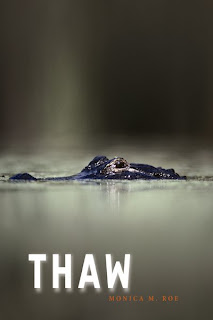
Roe, Monica M. 2008. Thaw.
Our narrator, Dane Rafferty, is a dumb boy. And that's not an exaggeration. He's a boy that really and truly doesn't get it. Doesn't get what it means to be considerate, be nice, be respectful, be humane, be compassionate. Stubborn. Angry. Self-centered. Frustrated.
Dane, when we first meet, him is helpless. Stricken with a disease--Guillain-Barre Syndrome--Dane is paralyzed. The good news, 75% of patients with GBS recover and gain back use of their bodies. Dane is past the worst--he's now able to breathe on his own. But the rest--control of his body from simple things like turning one's head, moving his arms, hands, fingers, sitting up, standing, walking, etc.--is all beyond him. For Dane, an active teen guy--a skier to be exact--this disease has crippled him mentally and emotionally.
The narrative is fractured, told in two parts--then and now. The now is March through May; the then is February. In just a few months, his life has changed--everything has changed. We meet his parents, his girlfriend, his friends through these passages. And what we see is not pretty. Dane is a jerk--pure and simple. But we are also seeing Dane in the present. We understand--or I suppose that should be I understood--why he was bitter and angry and cold. Why he put up such a defensive stand. He's angry at himself. Angry at his body. Frustrated with everybody including himself. He doesn't know how to trust. He doesn't know how to be patient. He doesn't know how to accept help.
The book is well-written. Very authentic. Even when Dane is acting like an a**, it feels like he's an authentic one. His coming-of-age story is powerful in its vulnerable honesty. This one's definitely worth sticking with, the pay off is very satisfying. One of my favorite aspects? The characterization. Everyone has depth. The story and characters are intricately done. Loved it.
Set in Florida and New York.
© Becky Laney of Becky's Book Reviews
Blog: Becky's Book Reviews (Login to Add to MyJacketFlap)
JacketFlap tags: classics, YA Fiction, slavery, coming-of-age, "T" Authors, Add a tag

Twain, Mark. 1884. The Adventures of Huckleberry Finn.
This was my first time to voluntarily read Huckleberry Finn. (Also my first time as an adult.) I think both of those are good reasons why I enjoyed this one so much. We first met the character of Huck Finn in Mark Twain's novel, Tom Sawyer. Sawyer makes for an entertaining narrator. All humor, little substance. But good fun. Finn, on the other hand, is a narrator with a bit more depth. (Okay a lot more depth.) The Adventures of Huckleberry Finn is a true coming-of-age story. Huck Finn grows in heaps and bounds as a person, as a soul, in this American classic.
The plot focuses on Huck and his relationship with a runaway slave, Jim. Huck had his own (very valid in my opinion) reasons for running away from home. While he is hiding out on "his" island, he discovers that he's not the only one hiding. Jim, a slave whom he's had a good amount of contact with in the past, has runaway. He's hoping to escape into freedom. The two end up running away together (by water mostly--various rafts and canoes, etc); their destinies become intertwined.
The two face more than a few hardships along the way. And face more than a couple of close calls. Most of their adventures escalate once "King" and "Duke" arrive on the scene and join these two. These two con men aren't likable, rather they're both despicable characters up to no good, but Huck and Jim can't seem to shake them. They're stuck with these two no matter how much they wish otherwise.
I don't want to go much more into the plot, but I will say that this one was a good read. The characterization of Huck and Jim is great. And the relationship between the two is really intricately and beautifully explored. The villains--King and Duke, Huck's father, etc.--are characters that are meant to be booed and hissed. Which shows--in some ways--that they're developed well enough to be thoroughly hated.
Definitely recommended.
© Becky Laney of Becky's Book Reviews
Blog: Becky's Book Reviews (Login to Add to MyJacketFlap)
JacketFlap tags: friendship, dysfunctional families, 2008, grief, YA Romance, YA realistic fiction, coming-of-age, "E" Titles, "H" Authors, Add a tag

 Howell, Simmone. 2008. (November release). Everything Beautiful.
Howell, Simmone. 2008. (November release). Everything Beautiful.
First sentence: I am the maniac behind the wheel of a stolen dune buggy. Dylan Luck is at my side. We are tearing up the desert, searching for proof of God. My driving experience amounts to a few stuttering laps of the Safeway parking lot. That was supervised--Dad blanching and clutching his seatbelt. This is something else; something beginning with Freedom.
The above is quoted from an ARC, so it's possible that it might be different from the final version which will be released in November of 2008.
Riley Rose is a wild child. Perhaps she hasn't always been a wild child, but the death of her mother--cancer--and the remarriage of her father--to someone named Norma!--and the appearance of her new best friend, Chloe Benson, have all led up to one conclusion. Riley Rose is a bit too wild for her own good, her own safety. The "help" that Riley is about to receive is to be sent for one week to Spirit Ranch, a Christian camp for teenagers. It shouldn't really surprise anyone that Riley is an atheist. An angry atheist who uses her mother's death as proof that God doesn't exist. Do I blame her for being angry that her mother died when she was fourteen? No. Do I blame her for not wanting her father to have moved on and fallen in love with someone else? Not really. No doubt about it, Riley is a hurt soul who uses anger and bitterness as a shield. Oh. I should also mention this. She also uses food. She's 180 pounds and climbing. She does use food to hide herself and numb her feelings.
The camp is a bit much. It has its ridiculous moments. Some stereotypical. Some not. Would I want to be sent to Spirit Ranch? No. So I can't blame her there. If she at first has difficulty liking her roommates, it's understandable. Especially in the case of Fleur. And her camp group, the Honeyeaters, there really aren't many there I'd seek out to make friends with either. There are more than a few that make fun of her. And only a few that don't. And those that don't, well, they're different themselves. There's Dylan. This is his first time back at camp since an accident has left him in a wheel chair. And then there's Bird. A sixteen year old with definite social problems. It's not that he's dumb. He's very intelligent. And he's kind. It's just that he doesn't have much social grace or social skills. Then there's Sarita, her other roommate, who becomes almost her closest friend at camp.
It was interesting to see a few of these friendship develop. And the budding romance between Dylan and Riley was nice. It was nice to see how they could sort-of-melt each other's hardened shields. Neither wanted to be vulnerable. Both were resistant to "authority" and afraid to make friends. It was easier for both to be angry and alone. So it was nice to see them bringing out the best in each other. And in the process, both got to know themselves a bit better than before.
Can a week change a person's life? Maybe or maybe not. But the Riley that leaves camp is a slightly wiser Riley. So it may have been the beginning for a change, a transformation.
Don't read Everything Beautiful expecting a clean read. Language. Sex. Underage drinking. Smoking. Drug use. Some occur with the week at Christian camp, others are just referred to in talking about their pasts, their lives before camp. But the book has its strengths.
Note on the cover. I REALLY REALLY hope that the cover is not supposed to represent fat-girl-Riley, because the cover model is so not fat.
© Becky Laney of Becky's Book Reviews
Blog: Becky's Book Reviews (Login to Add to MyJacketFlap)
JacketFlap tags: "G" Authors, "P" Titles, friendship, 2008, YA realistic fiction, coming-of-age, road trip, YA Mystery, Add a tag
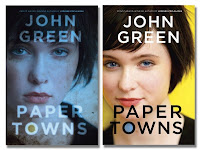
 Green, John. 2008. Paper Towns. October release.
Green, John. 2008. Paper Towns. October release.
Prologue opening paragraph: The way I figure it, everyone gets a miracle. Like, I will probably never be struck by lightning, or win a Nobel Prize, or become the dictator of a small nation in the Pacific Islands, or contract terminal ear cancer, or spontaneously combust. But if you consider all the unlikely things together, at least one of them will probably happen to each of us. I could have seen it rain frogs. I could have stepped foot on Mars. I could have been eaten by a whale. I could have married the queen of England or survived months at sea. But my miracle was different. My miracle was this: out of all the houses in all the subdivisions in all of Florida, I ended up living next door to Margo Roth Spiegelman.
First sentence: The longest day of my life began tardily.
My favorite quote: I spent the next three hours in classrooms, trying not to look at the clocks above various blackboards, and then looking at the clocks, and then being amazed that only a few minutes had passed since I last looked at the clock. I'd had nearly four years of experience looking at these clocks, but their sluggishness never ceased to surprise. If I am ever told that I have one day to live, I will head straight for the hallowed halls of Winter Park High School, where a day has been known to last a thousand years. (18)
Quentin Jacobsen, our narrator, has been trying to puzzle out the mystery that is Margo for years now. And as their senior year comes to a close, the mystery is only deepening as far as he's concerned. It all starts with a late night visit. Margo appears at his bedroom window asking Quentin to join her in some mischievous revenge--she needs his car, or rather she needs his mom's car. And Quentin, or Q as she calls him, would do anything and everything for this once-in-a-lifetime opportunity to spend some quality time with the girl of his dreams.
What happens that night and in the following weeks will shape Quentin in ways he never would--never could have--expected.
John Green's first novel, Looking for Alaska, won the Printz award in 2006. Green's second novel, An Abundance of Katherines, earned a Printz honor. And, of course, along the way he's picked up an enormous number of fans both through his books and his vlogging with the Brotherhood 2.0. (And though that's over and done with, more videos and blogging can be seen on the Nerdfighters Ning site.
Note: I'm reviewing an ARC, so keep that in mind when I'm pulling a few quotes out. They may or may not be the same as what makes it into the finished book that will be released in October.
Now for some Weekly Geeks Q&A fun:
Bart's Bookshelf asks, "I've not read any John Green, so have you a favourite quote/line from Paper Towns that best sums up the relationship of the main protagonists?"
I've already quoted a bit of this one. But here are two more that will give you a feel for the book:
"Margo always loved mysteries. And in everything that came afterward, I could never stop thinking that maybe she loved mysteries so much that she became one." (8)
"I smiled. She smiled. I believed the smile. We walked to the stairs and then ran down them. At the bottom of each flight, I jumped off the bottom step and clicked my heels to make her laugh, and she laughed. I thought I was cheering her up. I thought she was cheerable. I thought maybe if I could be confident, something might happen between us. I was wrong." (58)
Jennie asks, "Is Paper Towns everything that we've now come to expect from John Green? Because I'm DYING to read this one!!! Will I just be disappointed, so is my internal hype well-deserved?"
Yes. If you've followed his vlogging and come to love his personality just as much as his fiction, then you won't be disappointed. Green's personality shines through on this one. I haven't read An Abundance of Katherines yet, but this one is just as good as Looking for Alaska.
M. Molly says, "John Green said that Paper Towns was written as a response to Looking for Alaska. Do you see signs of this in PT? Also, does PT break out of JG's "Nerdy boy meets awesome girl who changes his life" equation (not that I mind it...)?"
Yes and no. In some ways the two books are similar. Two guys on the fringe of 'the-in-crowd' find a few wacky friends, two unforgettable girls to dream about and idolize, and thus "come of age". Both have humor and sarcasm in just the right amount. Both have their serious and meaningful layers. Where they differ, in my opinion, is in the mixing. Looking for Alaska is very bittersweet, very contemplative. And Paper Towns has this too. But it's not as bittersweet. It's a bit wackier than Looking for Alaska. Miles and Quentin are not mirror images or anything. Quentin has enough of a personality--as does his friends and dream-girl--to make this one unique. It is not Looking for Alaska part two. But if you boiled it down to the basics, it would have many of the same ingredients, just in different amounts.
Suey says, "I 2nd everything everyone's said about Paper Towns. Dying to know if it's like his others. Better maybe even?"
It's good. It's very good. I won't say I think it's the best, best, best book ever written. But it's definitely one of the better books I've read of YA published in 2008. It would make my top ten list--so far at least--for YA novels published this year. I can't say it's better necessarily. But I can say it met my expectations. I expected really good work, and it delivered. I was surprised by Looking for Alaska. I read it before it was published. It was his first book. I didn't know quite what to expect. And it just blew me away, I thought it was one of the BEST books of the year. So it's hard to match my enthusiasm and passion since with this one I went into with different expectations.
Melissa asks, "Trying to say something different about Paper Towns: how does it compare to his other two? Better? Worse? Different? Do you think that his style works well for the story? (I don't even know the story!)"
I think Green is great at coming-of-age stories about awkward guys who come into their own and get comfortable with who they are and what they want. And he's great at depicting the highs and lows of teen life. The best and worst and most embarrassing. He definitely is a great storyteller.
I haven't read An Abundance of Katherines, but I thought this one was just as good as his first one, Looking for Alaska.
Joy Renee asks, "I'm interested in the technique and art of storytelling itself so anything along that line would interest me. My questions are for any or all of the fiction titles in your list:
How was Point-of-View handled? Was there a single POV character or did it alternate among two or more. Was it always clear whose eyes and mind were filtering?
It was written in first person. And I think this was an effective way to tell a very personal story.
How does the title relate to the story? Was it fitting?" It was very fitting. I can't really go into it all here because it would contain spoilers. I think if you *know* ahead of time what the title is all about, then you might approach the book differently. It's best just to go with it and learn as the character grows.
© Becky Laney of Becky's Book Reviews
Blog: Crazy For Kids Books (Login to Add to MyJacketFlap)
JacketFlap tags: cartoons, racism, adolescence, coming-of-age, adolescence, coming-of-age, Add a tag
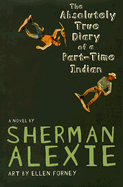 In some ways, it's unfortunate that Sherman Alexie's latest novel called The Absolutely True Diary of a Part-Time Indian recently won the National Book Award. I don't mean to imply that it is not worthy of the award. It is and then some. But here's hoping that the sassy title will win over readers who wouldn't go near an award-winning book.
In some ways, it's unfortunate that Sherman Alexie's latest novel called The Absolutely True Diary of a Part-Time Indian recently won the National Book Award. I don't mean to imply that it is not worthy of the award. It is and then some. But here's hoping that the sassy title will win over readers who wouldn't go near an award-winning book.
At its core, it's about a boy caught between his past and future. The story of Arnold Spirit or "Junior" is in many ways a coming-of-age-story where the protagonist is ready to grow beyond what his community can offer him. His future is different than his best friend Rowdy's, and they both know it. That doesn't keep them from hurtfully playing out the transition of their relationship, however. Rowdy must save face on the rez, so shunning and harassing Junior when he chooses to leave for another school, gives him a way to deal with his anger, sadness and jealousy. And his friend Junior understands.
One of the wonders of this story is how the author illuminates institutional racisim against the Indians. It's a core ingredient of the story, but it doesn't overwhelm the story. The events of life on the rez with the Spirit family are difficult and we cheer for Arnold Spirit as he breaks away to make a different life for himself. He is a young man who has a vision strong enough to manifest for himself. But he still feels the emotional pull to his family and life on the rez.
Junior's drawings are embedded throughout the story and are an integral part of how we come to know him. Through their graphic language, the drawings communicate the essence of the dilemmas that Junior deals with throughout the story. Pictures push the story forward and are as integral to a full understanding as the words.
The writing is masterfully simple and on target. Alexie's narrative puts us right "there" with Junior. We can feel the heat, we're at the basketball game, we know how long that walk is back to the rez. It's a story of triumph. A boy has a dream and overcomes adversity to achieve it. I highly recommend this book.
ISBN 978-0-314-01368-0
View Next 1 Posts



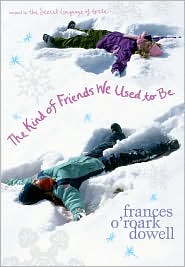
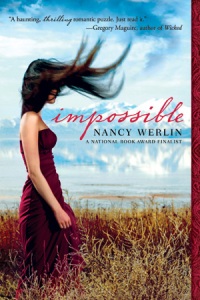
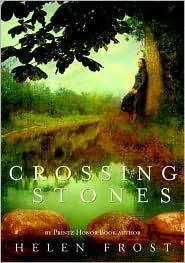

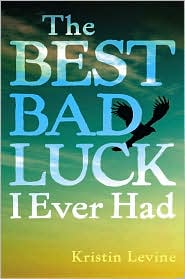
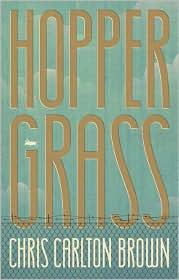
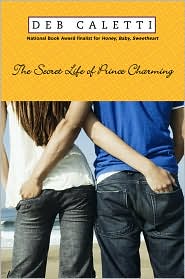
This sounds good enough to recommend to my 12-year-old daughter the next time she asks, "What should I read?". Thanks for your review, Becky.
Dear blog friends: Hello!
I am from Taiwan, plastic surgery clinic's website, I am pleased to come to your blog, but also absorb a lot of valuable information and articles.
Besides, do we have this honor and opportunity to ask you to join my site to your blog, so that everyone sharing? Thank you!
The following is my website name and URL, also hope to regularly visit and exchange ︿ ︿ Oh, I wish you peace and success!
Site Name:隆乳整形外科 果凍矽膠整形
URL:http://www.nuimage.com.tw http://www.cpchen.com.tw
E-mail:[email protected]